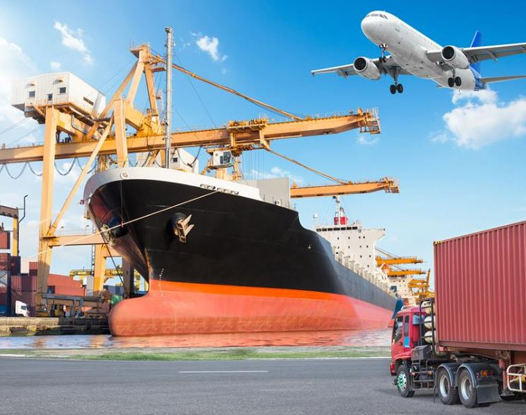Cargo Expedition: The Cornerstone of Global Trade
Cargo Expedition: The Cornerstone of Global Trade
Blog Article
Cargo expeditions serve as the primary source of international trade, ensuring the seamless movement of goods between borders and continents. They play a crucial role in connecting suppliers, manufacturers and customers, thus facilitating the growth of global markets. From bringing raw materials into production, to the delivery of finished goods to markets, cargo expeditions assure that supply chains run effectively. Due to the speed of globalization, demand for reliable and efficient cargo services has risen dramatically changing the market into an extensive web of logistics, technology and infrastructure. Every trade deal that is successful regardless of size relies on the success of cargo operations.
The flexibility of cargo trips is in their capacity to adjust to different methods of transport in order to satisfy specific transport requirements. Air freight offers unparalleled speed and is ideal for high-value or time-sensitive shipments like medical devices and electronics. Ocean freight is the most popular by volume as it allows the movement of bulk commodities like agricultural commodities, crude oil such as cars and agricultural products. Land transportation, comprising railway networks and trucks links airports and ports to the final destination, offering comprehensive logistics solutions. Integration of these transport modes into multimodal networks allows cargo trips to find the perfect balance between effectiveness as well as cost and delivery times, which makes them vital to businesses of all sizes.
Technology has revolutionized the cargo transportation industry, streamlining its operations and enhancing transparency. Innovations such as GPS tracking, automated inventory systems, and blockchain technology have changed how cargo is managed and monitored. The advancements in technology allow for instant updates that allow businesses to follow shipments, and even anticipate delays. Additionally, artificial intelligence and data analytics are utilized for optimizing routes, predicting demand, and enhance efficiency of decision-making. This integration of technology does can not only boost efficiency but also builds relationships and trust between logistics service providers as well as their customers. In an industry where precision and reliability are paramount the technology revolution is one that is constantly improving.
The modern age of technology plays a crucial function in improving the efficiency and precision of Cargo Expedition. Real-time tracking systems that are powered with GPS as well as RFID technology, enable companies and consumers to track shipments throughout the entire journey. This increases transparency, reduces the chance of losing or delayed shipping as well as ensures timely shipping of the goods. In addition, automation is changing the logistics industry through improving processes like managing warehouses, fulfillment of orders as well as the routing of shipment. Advanced software systems use data analytics to optimize the shipping routes while minimizing shipping costs and the amount of the time. By integrating these technological advancements cargo transportation companies will be able to expand their capabilities and fulfill the ever-growing demands of international trade. To find additional details please see post
The successful cargo journey greatly depends on the experience and coordination of logisticians. These individuals manage complex supply chains and ensure that they are in compliance with international trade rules and requirements for customs. They strive in order to predict and solve potential challenges, such as the occurrence of delays, geopolitical tensions or disruptions in weather. The ability of their team to work together across various modes of transportation as well as time zones and languages is essential to maintain the effectiveness of trade across borders. Continuous training and skill development are crucial in this sector, enabling professionals to adapt to advancements in technology and the constantly changing demands of the world market.
The increasing demand for cargo transport service is inextricably linked to the rapid growth of e-commerce which has fundamentally changed the manner in which merchandise is sold and purchased. E-commerce has brought about a world-wide marketplace where products are offered to consumers on different continents. This has resulted in faster and more reliable delivery systems. Online retailers, especially giants such as Amazon and Alibaba are revolutionizing the logistics industry through adding advanced technology to their supply chains. This has allowed their customers to receive delivery in near-instant times. They have raised the bar for all other businesses, making the companies to invest in streamlined methods of cargo transport to stay relevant. While e-commerce grows it is becoming increasingly important to streamline and efficient services for cargo will become more important than ever, reshaping global logistics systems and driving innovations in this sector.